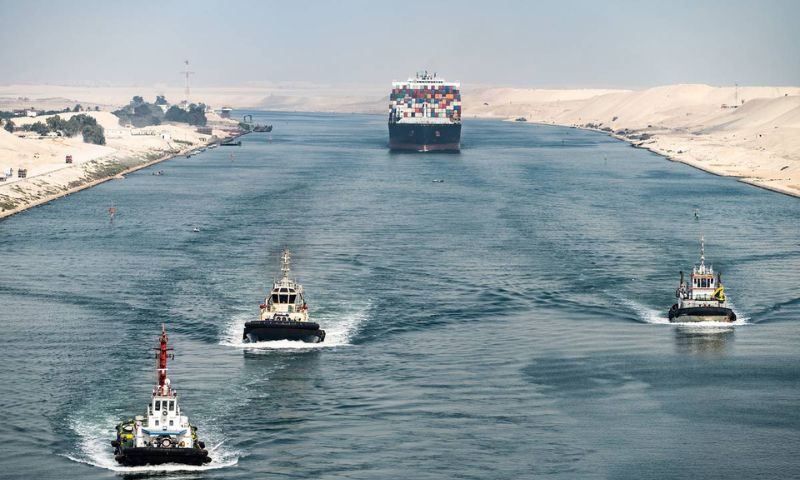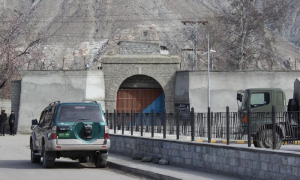UNITED NATIONS: The volume of commercial traffic passing through the Suez Canal has fallen by more than 40 percent in the past two months following attacks by Yemen’s Houthi rebels, the UN says, raising concerns about global trade.
The Iranian-backed Houthis are targeting what they see as Israeli commercial or military shipping in the region in solidarity with Palestinians in Gaza, forcing some cargo carriers to take longer and more expensive routes to avoid attack.
“We are very concerned that the attacks on shipping in the Red Sea add tension to global trade and exacerbate (existing) trade disruptions due to geopolitics and climate change,” UN Conference on Trade and Development (UNCTAD) chief Jan Hoffman told media on Thursday.
According to UNCTAD, ships diverting from the Red Sea – instead sailing around South Africa’s Cape of Good Hope – have led to a 42 percent drop in transit through the Suez Canal over the past two months.
The Suez Canal in Egypt establishes a link between the Mediterranean Sea and the Red Sea. More than 80 percent of the volume of global trade in goods takes place by sea, Hoffman said.
“Maritime transport is really the lifeline of global trade,” he said.
The number of weekly container ship transits through the Suez is down 67 percent year-on-year, according to UNCTAD, as more than 20 percent of the world’s container trade passes through the Suez Canal.
“Given that it’s above all the larger container ships that divert from the Suez Canal, the decline in container carrying capacity is even bigger,” Hoffman said.
Tanker traffic has dropped 18 percent, the transit of bulk cargo ships carrying grain and coal has recorded a decline of six percent and gas transport is at a standstill.
Overall, around 12-15 percent of world trade — 20,000 ships per year — passes through the Red Sea, that links Europe and Asia.























